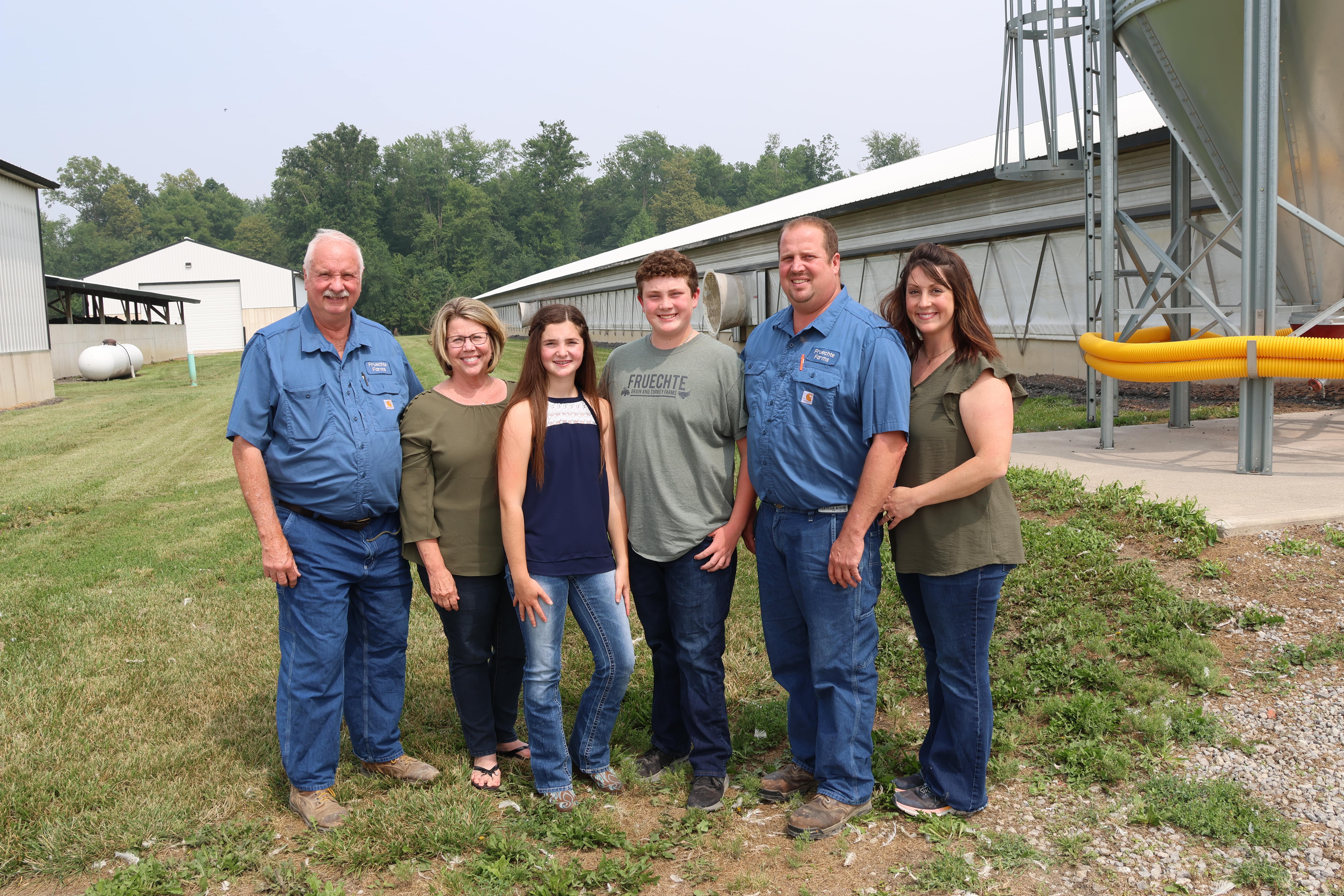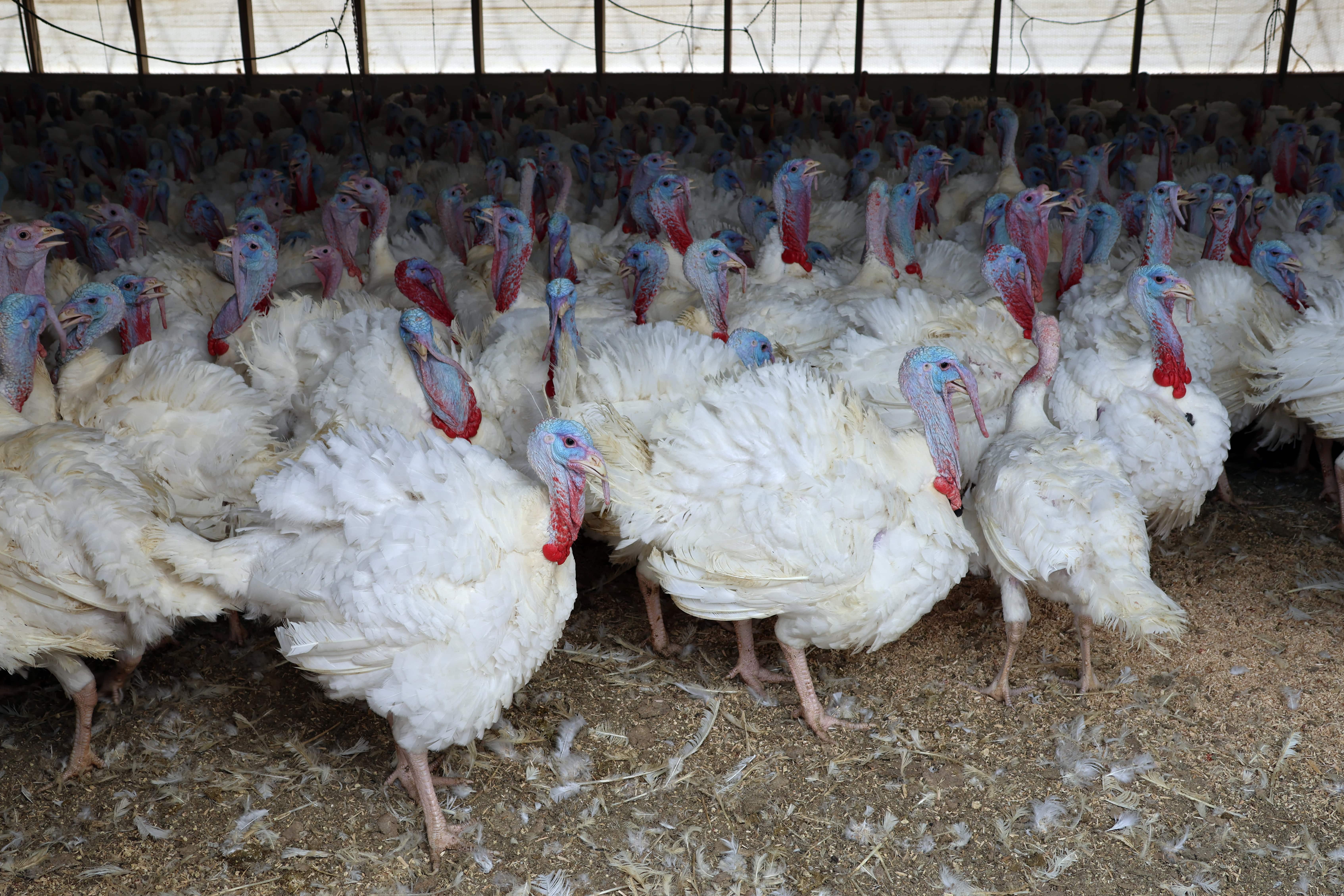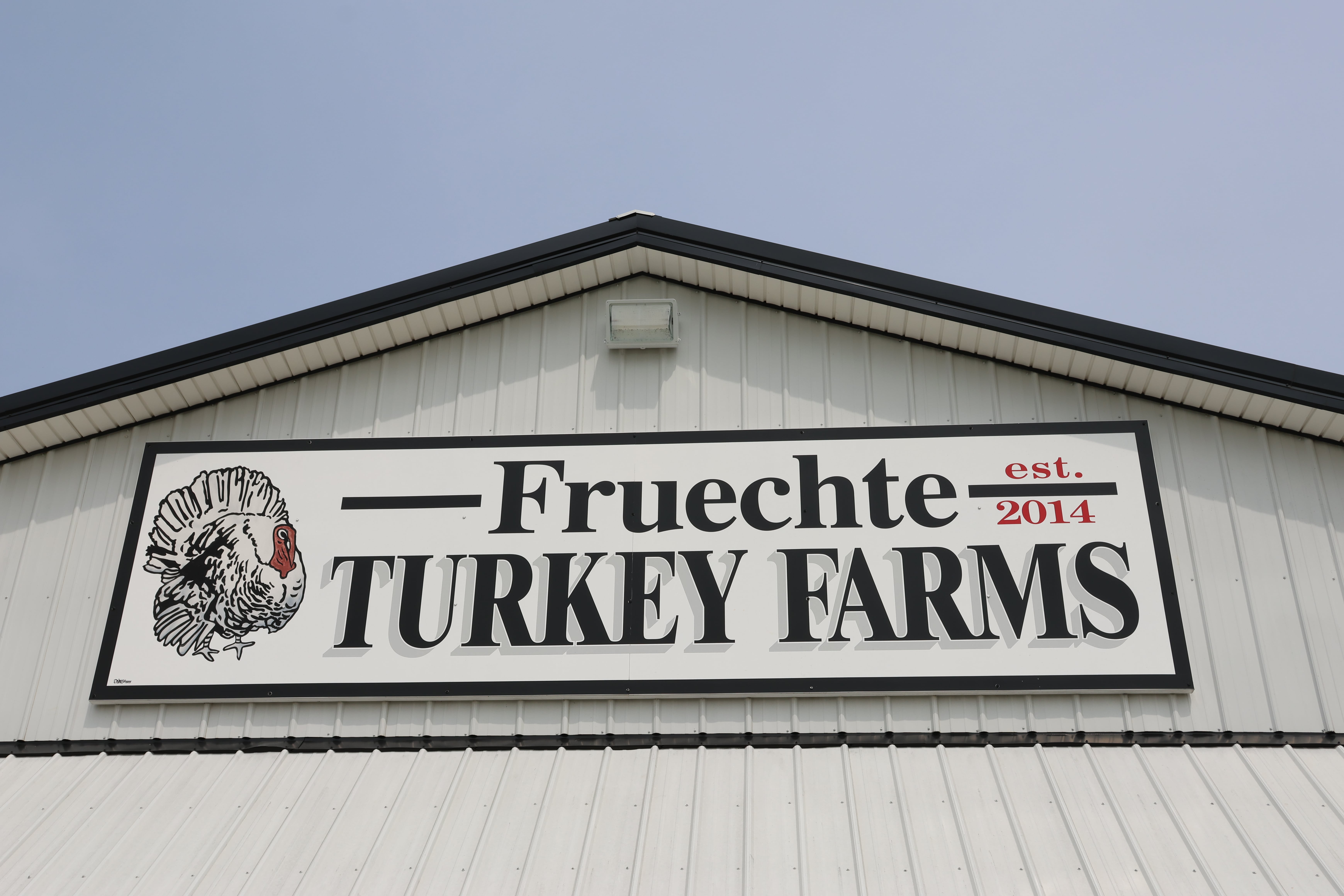Stay Informed
Turkeys help Adams County farm to diversify
Raising turkeys is now an integral part of Fruechte Farms in Adams County, but this hasn’t always been the case.
“We wanted to diversify from the grain side and branch into livestock,” said Craig Fruechte. “The first option was the hogs – we grew up with hogs – but we looked into turkeys.
“It’s a whole different ballgame, going from a four-legged creature to a two-legged one,” he added.

The family includes Craig and Mindy, along with their children, Mason and Brielle. Craig's mother, Cindy, also is involved, and until his recent death, his father Kim was as well. They raise about 1,600 acres of corn, soybeans and alfalfa, but they built and maintain four barns in which they produce turkeys for Cooper Farms, a farm and food company based in northwest Ohio. They started raising them in 2014 and sold their first flock in 2015.
The Fruechtes receive the turkeys in flocks totaling 24,000 birds. At this stage, the birds are 5 weeks old and weigh about 5 pounds each.
“We get the birds when they’re 5 pounds and finish them out at roughly 50 pounds,” Craig explained. This process takes four months.
The Fruechtes and Cooper Farms say they consider the turkey enterprise to be a true partnership.
“It's a partnership between the family farmer and Cooper Farms,” said Lisa Kahlig, who manages grower relations for Cooper Farms. “The farmer provides the building, the building maintenance and the day-to-day care for the animals, and we provide the animals themselves, the feed, the veterinary care and then the marketing of the animals."
If you’re trying to imagine a 50-pound bird on someone’s dinner table, you’ve got the wrong idea. While all parts of the birds are used, cooked deli meat is the main end-use of the Fruchtes’ turkeys.

“Everyone thinks these are Thanksgiving turkeys, but they’re not,” said Cindy. The birds are processed in nearby St. Henry, Ohio, and the meat is cooked and packaged in Van Wert, Ohio. It’s sold under various private labels, Kahlig explained.
For the Fruechtes, the turkey litter is an important byproduct. They either incorporate it directly to their fields or put it in a manure storage barn that can hold up to one year’s worth of manure.
“If you sell it, you get only so much per ton, but if we put that value on our fields instead of buying commercial fertilizer, it’s much more valuable,” Craig said, estimating that this has cut their crop costs by about 40%. They test the litter after every flock, and they soil test every two years to make sure they’re not under- or over-applying. Generally, though, every field that’s going to be planted in corn gets an application of turkey litter.
Over the years, the Fruechtes have fine-tuned how they use the turkey litter, and now they don't use any additional fertilizer on their corn ground except for starter fertilizer and anhydrous ammonia.
Earlier this year, the Fruechtes were one of five farms across the United States to receive the U.S. Poultry & Egg Association’s Family Farm Environmental Excellence Award.
At 24,000 birds, the Fruechtes are under the limit to be considered a confined feeding operation (CFO) or a concentrated animal feeding operation (CAFO).
“But we built everything as if we were a CFO,” Craig said. Craig and Mindy also talk about their operation to their coworkers at their off-farm jobs: Craig works for Agri Stats in Fort Wayne and sells insurance, while Mindy is an orthopedic nurse.

“Talking about this with my coworkers is huge because they have this preconceived notion of what they think we're doing with our birds. So it’s important to reinforce that we really do care about our animals and things involved in providing good care,” Mindy said.
A major concern is biosecurity.
“Turkeys are susceptible to diseases anyway,” Craig said. “But with avian influenza, there is no warning. Suddenly, the water consumption in the barns drops in half overnight, and by then it's too late.”
It all comes down to prevention, and that means paying attention to sanitation, controlling access – of both people and wildlife – to the property and controlling the family’s own exposure to possible sources of infection.
“With bird flu, we must deal with it year in and year out now. It's not going to go away,” Craig added.
Despite this, the Fruechtes are glad they chose this form of diversification.
“I'd say the turkey operation is probably one of the better add-ons to the farm,” Craig said. “We'd do the turkeys again in a heartbeat.”





